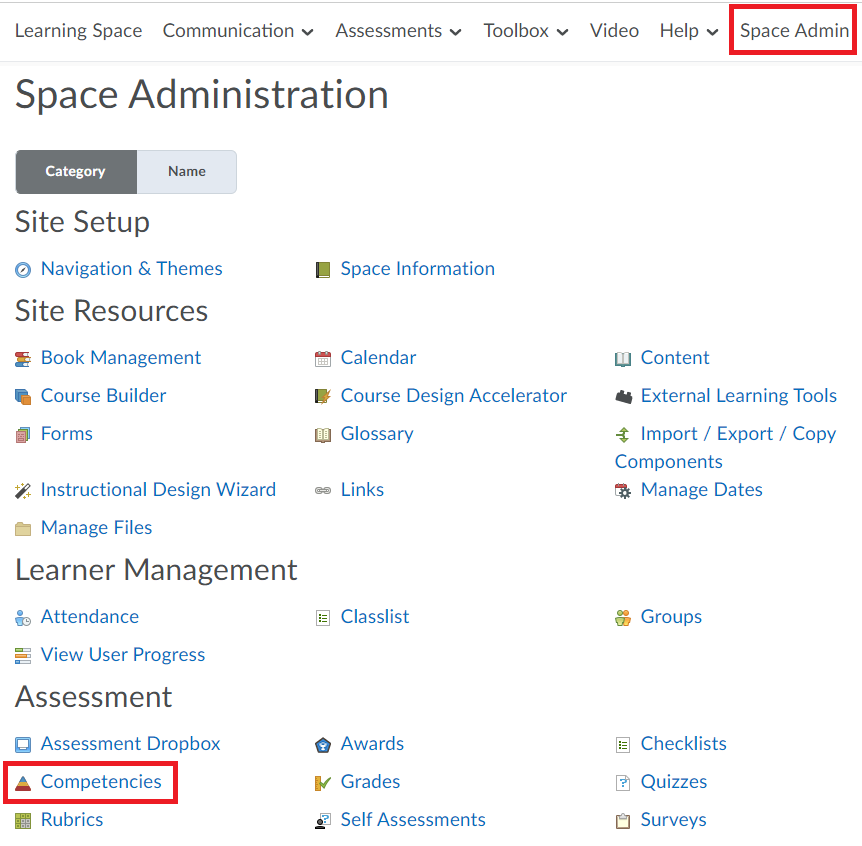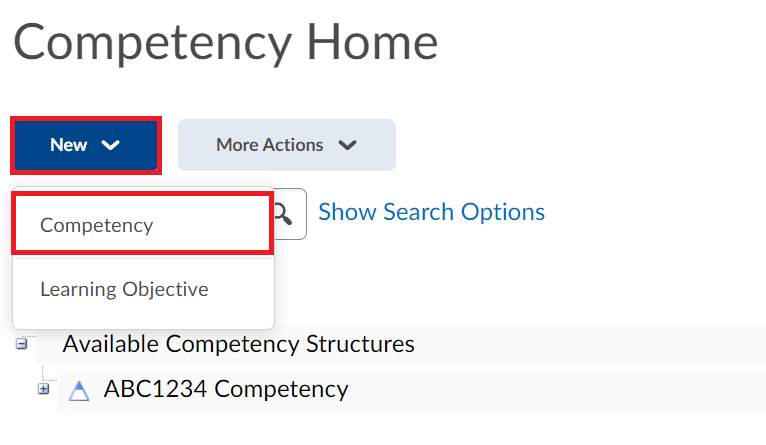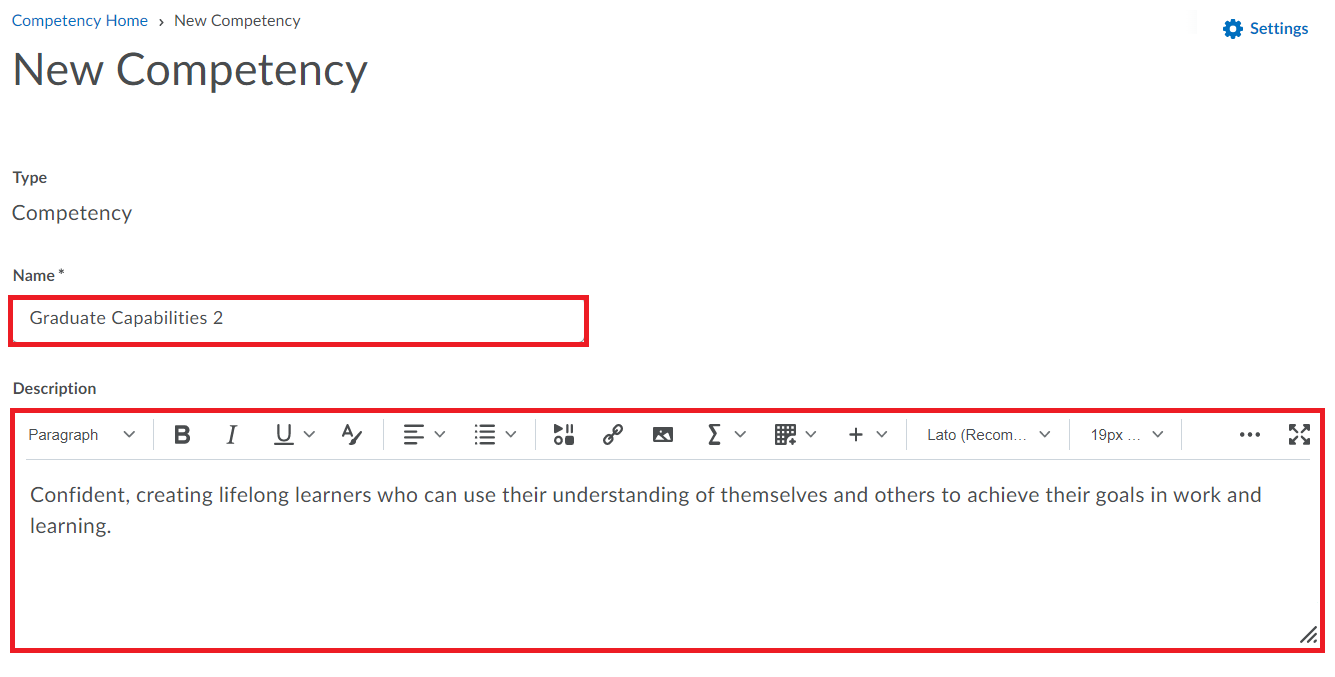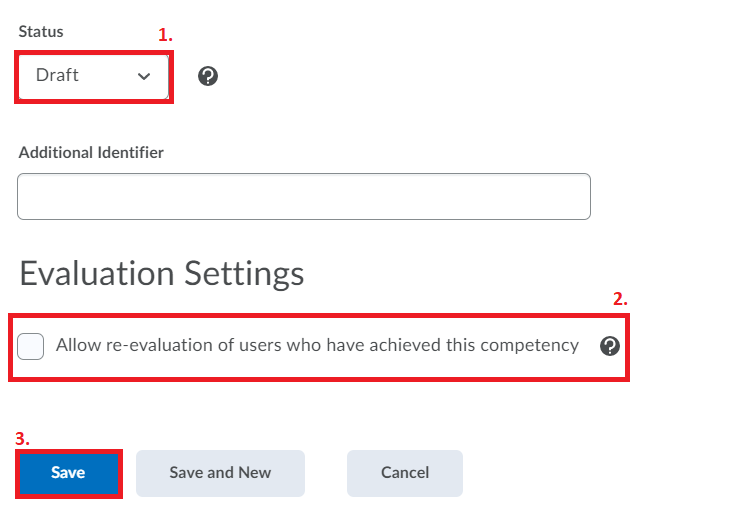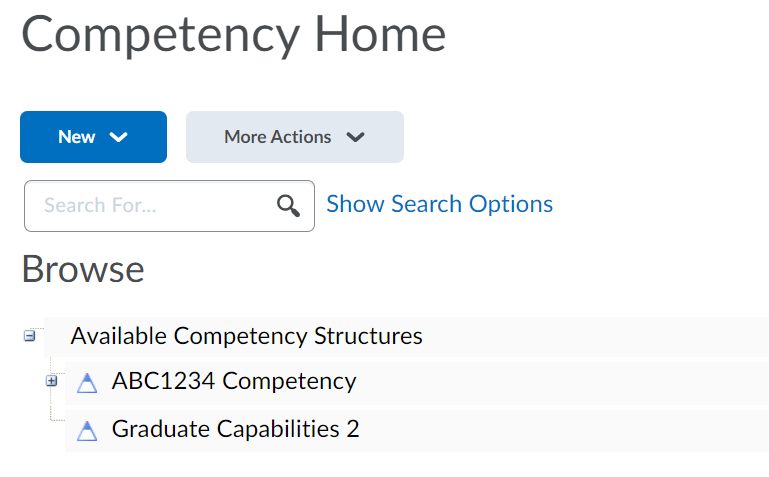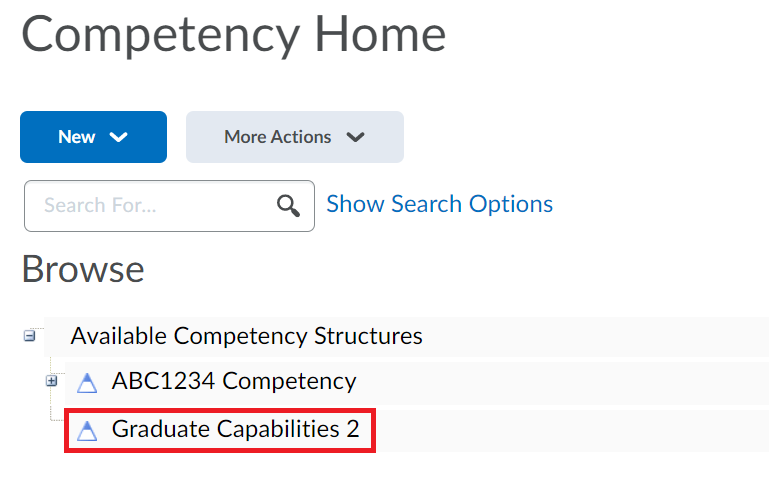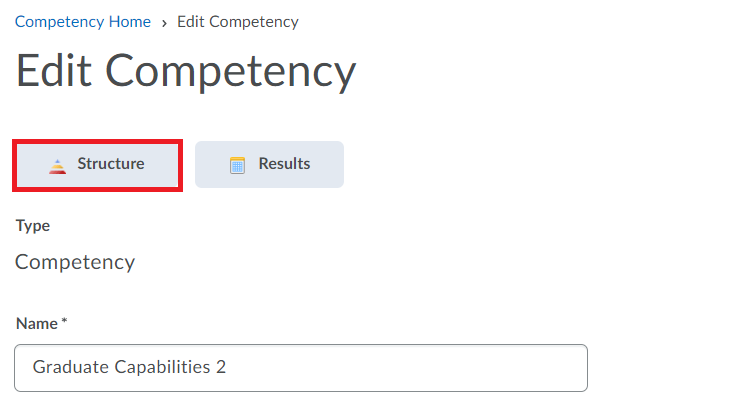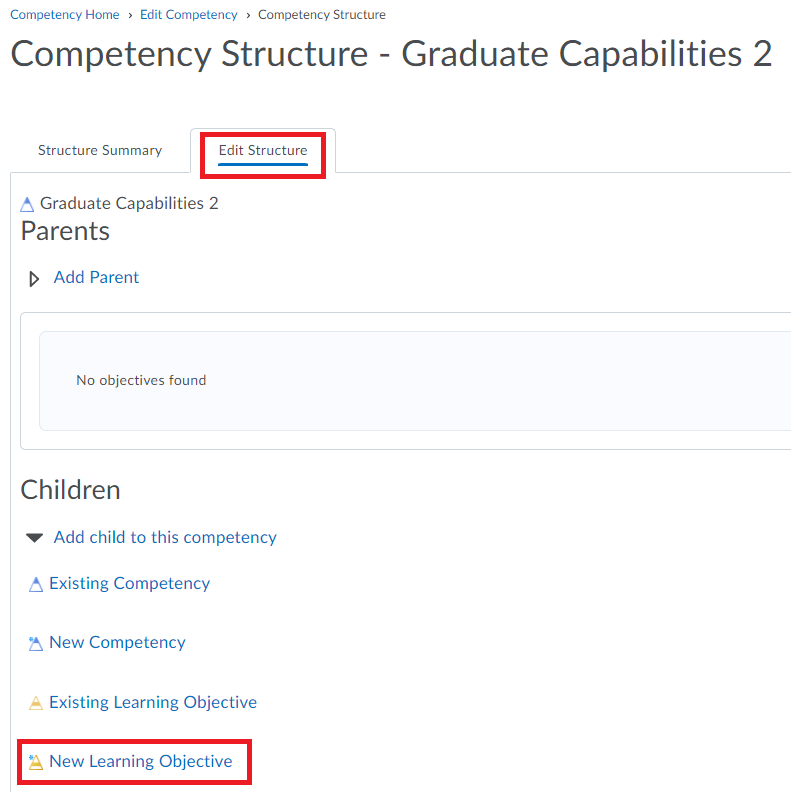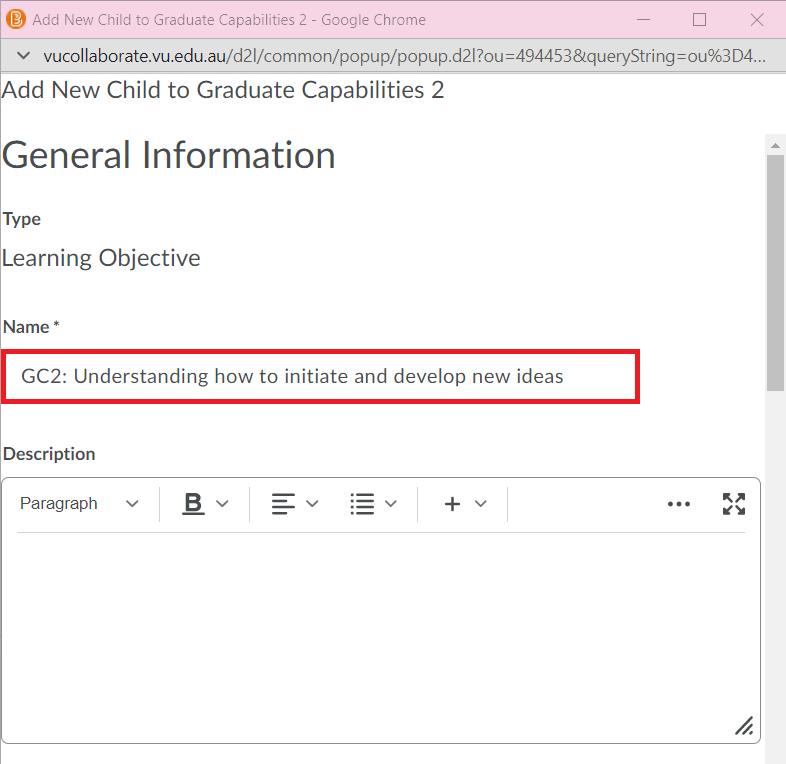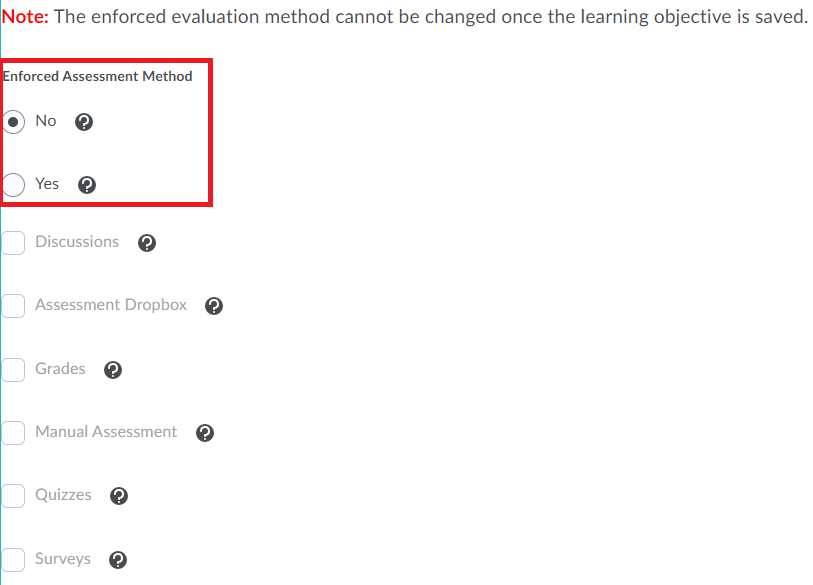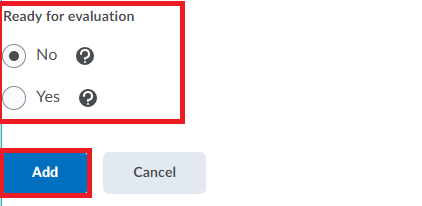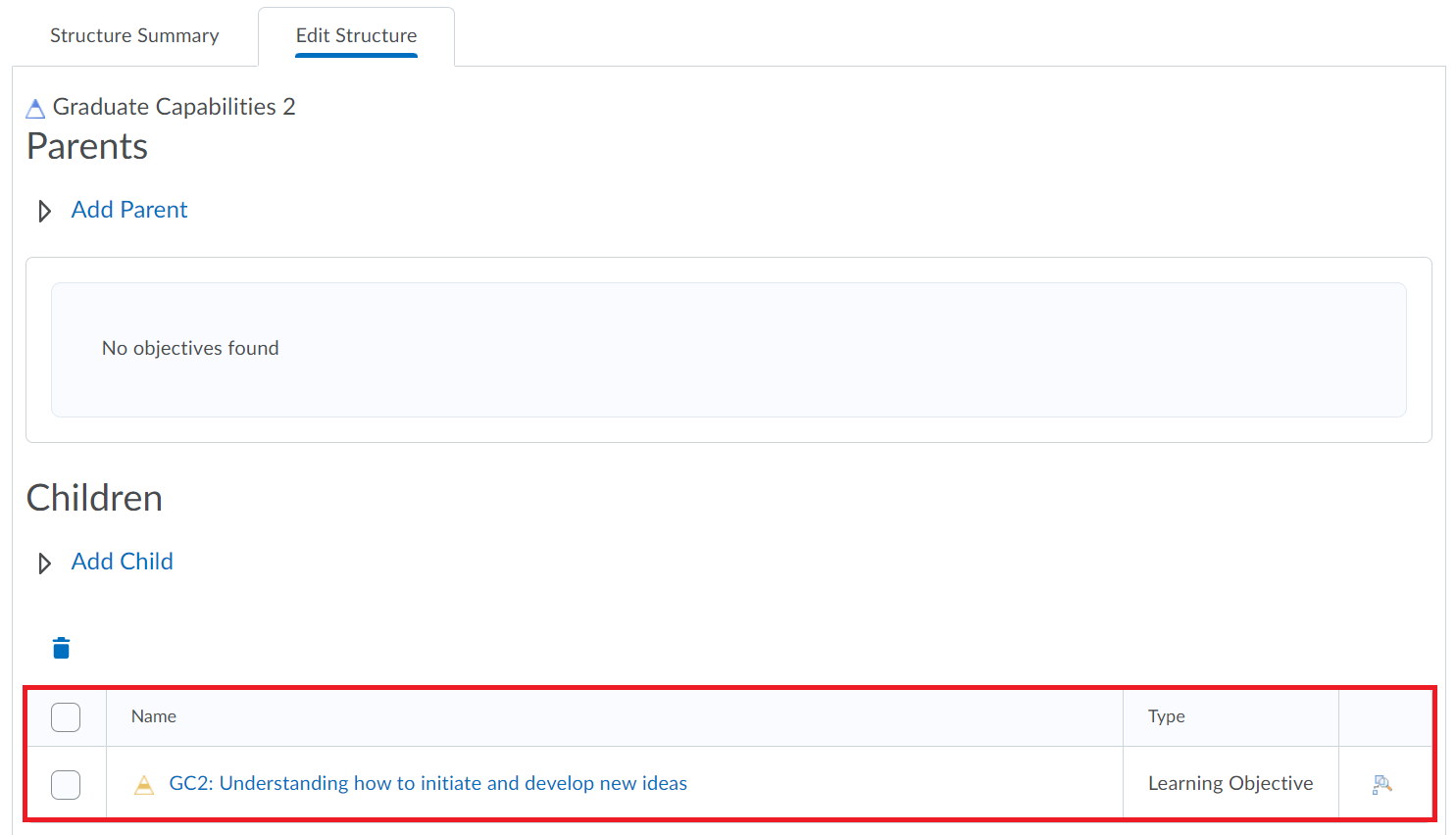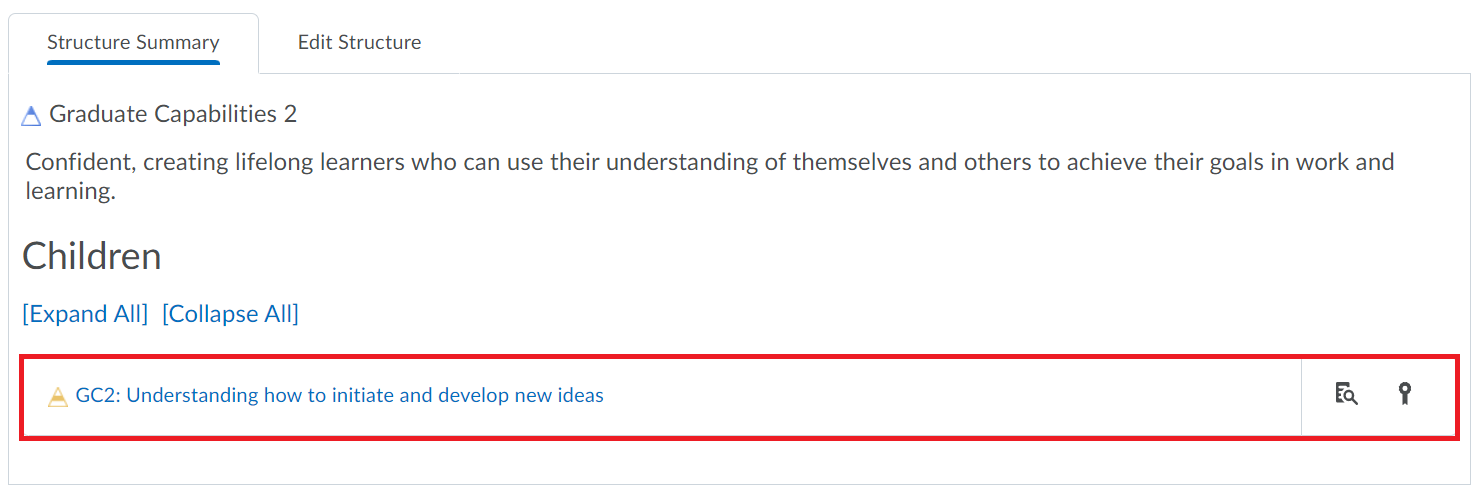Creating Learning Objectives and Competencies
In VU Collaborate, it is possible to associate learning objectives to a range of items, including assessment dropboxes, quizzes, discussions and grades.
This tool can assist both you and your students with the marking and learning criteria for an assessment. Furthermore, you can track each student's progress and ensure that they are meeting the learning objectives for this unit. Additionally, students can use these learning objectives to reflect upon their learning on ePortfolio. To learn about ePortfolio, view Creating Reflections in ePortfolio.
The following steps to Creating Learning Objectives and Competencies can be found below:
Step One: Create a Competency
Before we create learning objectives, we have to make a competency. A competency is the parent object in which the learning objectives will be located. Examples of competencies can be graduate capabilities or unit learning outcomes.
1. Access your desired unit space.
2. Select Space Admin from the navigation bar and click Competencies from the Assessment section.
3. The Competency Home stores all of your unit's available competency structures. You can either look for an existing one or make a new one.
To create a new competency, select New then Competency.
4. Give the new competency a Name and fill in the description (optional).
5. Scroll down for additional settings of your competency.
- Status: set restrictions on the new competency. Keep the competency as a draft, as this is necessary to add further learning objectives to the competency.
- Evaluation Settings: tick this option if you want the system to re-evaluate all users when this competency is changed.
6. Click Save to create a new competency.
A new competency has been created and saved in your Competency Home.
Step Two: Creating a Learning Objective
1. To create a learning objective associated with the previous competency you have just developed, click on the competency title.
In this scenario, Graduate Capabilities 2 is selected.
2. Within the Edit Competency screen, select the Structure button.
3. By default, you will navigate to Structure Summary. Select Edit Structure to add a child to the competency.
4. Select New Learning Objective from the Children section.
5. Give the learning objective a relevant name and fill in the description (optional).
6. Under the Enforced Assessment Method, we recommend selecting No so that you can use the learning objects with any item in your unit. Selecting Yes will tie your learning object to particular tools, such as discussions, grades or quizzes.
Note: Enforced evaluation methods cannot be changed after saving the learning object.
7. Under Ready for Evaluation, we recommend selecting No as this allows you to have your learning outcomes saved and unaltered if any changes are made to the assessment. You can also edit or delete learning outcomes that you have allocated to your students.
Alternatively, if you select Yes, it will allow user completion of the learning objective. It will be re-evaluated if new activities are added, or existing ones are edited or removed.
8. Click Add.
Your new learning outcomes are now created under the Children section.
It can also be found under Structure Summary.
To learn how to associate a learning objective to a learning object, view this guide on Associating Learning Objectives to Assessment Dropboxes.



